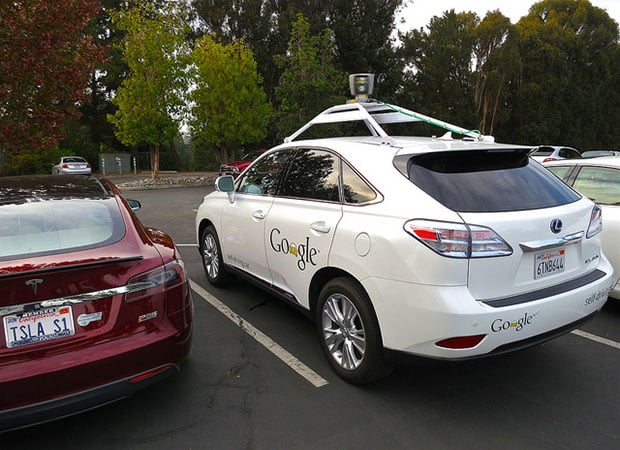Google And Automakers In Rare Agreement To Trash California’s Proposed Self-Driving Car Rules
One thing that Google and automakers such as General Motors and Volkswagen can all agree on is that California's proposed rules on self-driving cars, while perhaps penned with good intentions, would hamper efforts to develop and test potentially life saving autonomous vehicle technologies. They could also lead to skewed reports regarding the safety of self-driving cars.
For example, one of the rules (PDF) California proposed is that police wouldn't need a warrant or subpoena to extract any self-driving data within 24 hours. That one was one of many rules Google and automakers with vested interested in autonomous vehicles questioned and ultimately opposed, as the data would typically only be collected after accidents or when certain technologies fail. The fear is that subsequent reports would focus only on failures and completely ignore the many safety benefits.
Other restrictions laid out could hinder or otherwise unnecessarily delay getting safe cars on roadways, such as requiring a 12-month delay between testing a vehicle and deploying it on public roads.
David Strickland, counsel and spokesperson for the Self-Driving Coalition for Safe Streets made up of members consisting of Ford, Google, Lyft, Uber, and Volvo, said his organization couldn't get behind the proposed rules as currently drafted.
"The Coalition was founded earlier this year to promote the benefits of fully self-driving vehicles and support the safe and rapid deployment of these innovative and potentially life-saving technologies. The Coalition supports efforts to provide consistent national guidance across states for the deployment of Highly Automated Vehicles (HAVs). Unfortunately, the DMV’s proposal contains a number of provisions that would hinder these efforts and, as a result, the Coalition cannot support the revised draft regulations as currently written," Strickland said.
Strickland acknowledged that the proposed update fixes several key concerns in the draft from last December but said they came at the expense of creating new issues and concerns, some of which "could greatly delay the benefits that self-driving vehicles can bring to safety and mobility for individuals."
There's a lot at stake here. Policies enacted in big and highly populated states tend to set the tone for other states to follow. On the plus side, the rules aren't written in stone—Brian Soublet, deputy director of the California DMV, asked for suggestions to improve its proposal and the department would consider potential changes in the coming months.
For example, one of the rules (PDF) California proposed is that police wouldn't need a warrant or subpoena to extract any self-driving data within 24 hours. That one was one of many rules Google and automakers with vested interested in autonomous vehicles questioned and ultimately opposed, as the data would typically only be collected after accidents or when certain technologies fail. The fear is that subsequent reports would focus only on failures and completely ignore the many safety benefits.
Other restrictions laid out could hinder or otherwise unnecessarily delay getting safe cars on roadways, such as requiring a 12-month delay between testing a vehicle and deploying it on public roads.
David Strickland, counsel and spokesperson for the Self-Driving Coalition for Safe Streets made up of members consisting of Ford, Google, Lyft, Uber, and Volvo, said his organization couldn't get behind the proposed rules as currently drafted.
"The Coalition was founded earlier this year to promote the benefits of fully self-driving vehicles and support the safe and rapid deployment of these innovative and potentially life-saving technologies. The Coalition supports efforts to provide consistent national guidance across states for the deployment of Highly Automated Vehicles (HAVs). Unfortunately, the DMV’s proposal contains a number of provisions that would hinder these efforts and, as a result, the Coalition cannot support the revised draft regulations as currently written," Strickland said.
Strickland acknowledged that the proposed update fixes several key concerns in the draft from last December but said they came at the expense of creating new issues and concerns, some of which "could greatly delay the benefits that self-driving vehicles can bring to safety and mobility for individuals."
There's a lot at stake here. Policies enacted in big and highly populated states tend to set the tone for other states to follow. On the plus side, the rules aren't written in stone—Brian Soublet, deputy director of the California DMV, asked for suggestions to improve its proposal and the department would consider potential changes in the coming months.


